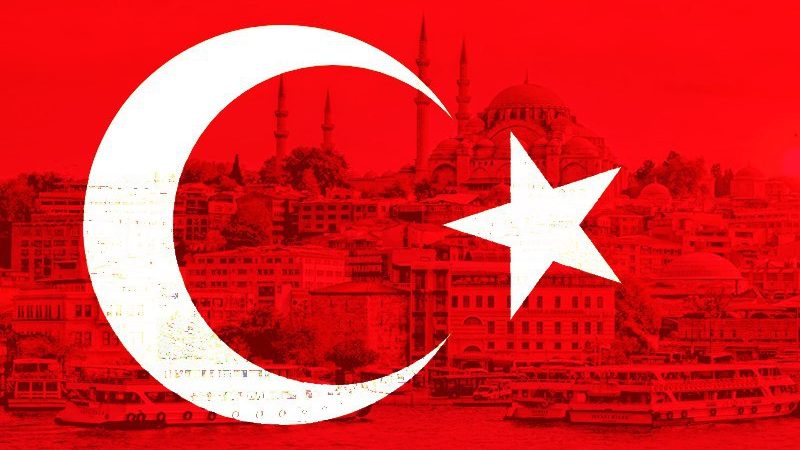The political agenda in Turkey has heated up along with the weather.
The government’s new political actions in some unexpected fields have sparked a massive debate among the Turkish public.
PROTESTS AGAINST THE NEW LAW ABOUT JUDICIAL BAR ASSOCIATIONS
The draft law on changing the status of the lawyer’s bars, which has been discussed frequently in the past weeks, has come to the parliament for voting this week and has led to some large protests.
The protests of the bar associations, which started with a march from Istanbul to Ankara against the draft law, continued with the mass demonstrations organized by the lawyers at the Istanbul Caglayan Courthouse, and a sit-in protest by the bar associations at the gates of the national parliament.
The clashes between lawyers and the police who had come to the parliament gates last Friday in order to support the bar associations, has led to a growing debate.
The draft law which was proposed by the government concerning a reorganization of the Bar Associations, proposes the representation of provinces in the establishment with multiple bars if there is a sufficient number of lawyers, as well as the bar having different numbers of members in the Turkish Bar Association elections in equal proportions.
The government claims that the bar system will be more democratic if the bill passes.
The opposition argues that the draft law aims to create some pro-government bars by changing the structure of the bar associations, in which the governments had been non-influential for decades.
Another point that the opposition stands against, is that if this proposal is enacted, it would open the way for splits within the bar associations based on religious, ethnic and ideological grounds, and the whole judiciary system, which is one of the building blocks of the unitary state, would be devastated.
The fact that a similar draft law was initiated at the time when the Gulenist terrorist organization was active has raised even more questions.
While almost all of the lawyer’s bars oppose the draft law, the government has already started discussing the proposal in parliament.
The President of the Union of Turkish Bar Associations, Feyzioglu, stood against the draft, while defending that this proposal could only be blocked by the government if negotiated.
The heads of the bar associations, especially the heads of Istanbul, Ankara, and Izmir, argue that it is necessary to fight against this plan through protests, and not through negotiations.
DEBATE ABOUT WOMEN’S RIGHTS
Another hot topic of discussion in Turkey was the government officials’ statements regarding abdication from the Istanbul Convention, which includes the prevention of domestic violence against women and the protection of women’s rights and freedoms, signed in 2011 under the roof of the Council of Europe.
Government officials, who claimed that the Istanbul Convention would harm the traditional family values and would normalize homosexuality, said that Turkey would abdicate from the agreement.
President Erdogan has said that Turkey would resign from this agreement if the people want to.
While statements from the government officials have sparked a major public debate, the opposition wing claims that the government’s intentions in resigning from the Istanbul Convention are actually about imposing restrictions on women’s rights.
Turkey granted the women the right to vote and to be elected before many countries in 1934, the Civil Code grants the women many rights. With the Istanbul Convention, these rights were even further increased.
THE STATUS OF THE HAGIA SOPHIA
Discussions about the status of the Hagia Sophia, which has a worldwide historical importance, continue, full steam ahead.
The court case against the cancellation of the Council of Ministers’ order in 1934, which gave Hagia Sophia the status of a museum, with the application of an organization affiliated with the government, goes on at the level of the Council of State.
While the government has ensured that they will comply with the Council of State’s decision, it has been rumored that President Erdogan ,in a bid to increase his popularity in the national community, plans to turn Hagia Sophia into a mosque.
The Hagia Sophia Basilica, which was built as a Cathedral during the Byzantine era, was converted into a Mosque later in 1453 after the conquest of Istanbul by the Ottoman Sultan Mehmet II. (the Conqueror).
During the Republic era under the leadership of Mustafa Kemal Ataturk, Hagia Sophia was granted the status of a museum by the decision of the Turkish Council of Ministers in 1934, and then was declared a World Heritage Site by UNESCO in 1985.
The opposition argues that Turkey’s international interests will be badly damaged if such a decision is taken, while claiming that the government has the intentions to strengthen its approval rates, which had dropped with the economic crisis, and to distract the agenda with the debate over Hagia Sophia.
The Council of State has announced that a decision on the status of Hagia Sophia has been made, and is to be announced in the coming days.









Leave a Reply